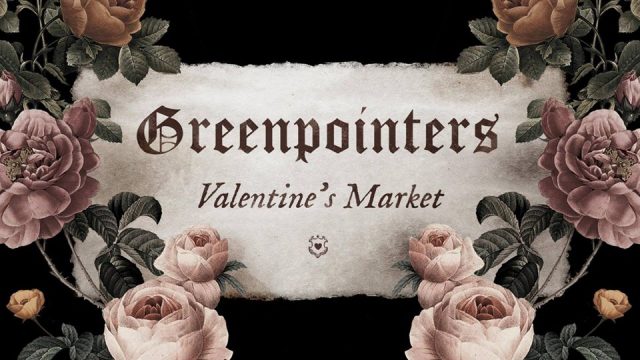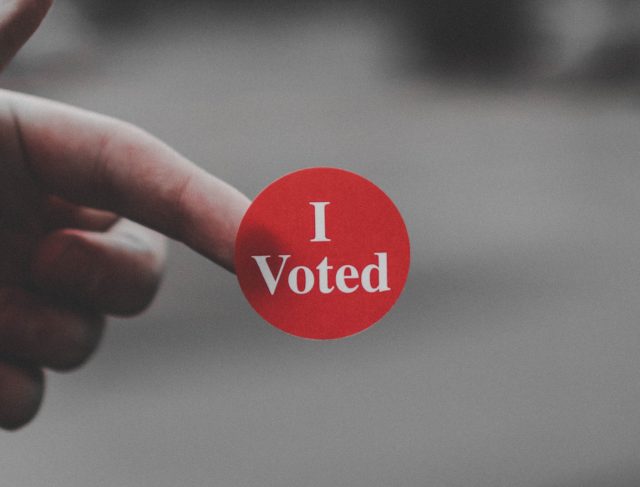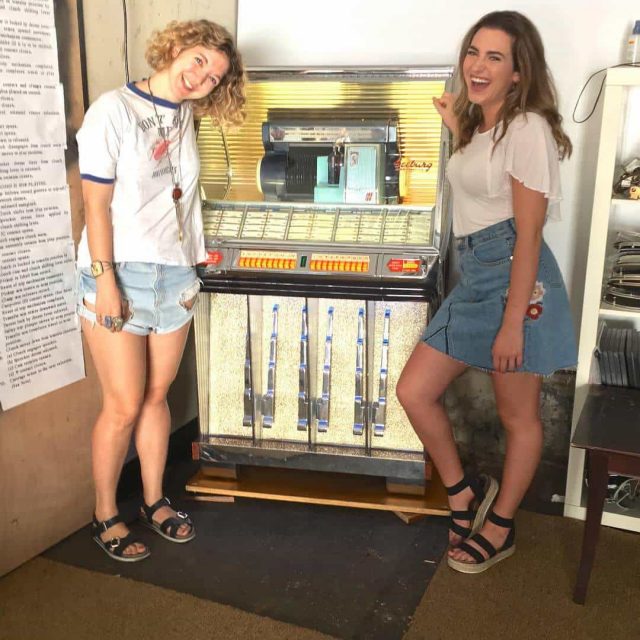
Renting vintage Seeburg jukeboxes to partygoers may seem like an odd business model in 2017. We have, after all, the entire history of recorded music at our fingertips (minus Jay-Z) on Spotify and Youtube. If I forget the name of that one song that goes all night / I’ve been drinking all night / I’ve been drinking all night / hey, I can shout that hook into my phone and demand that it play third, after an Arnold Schwarzenegger exercise tutorial performed, in verse, over “Let Your Body Rock” by Champaign, and that one new Lorde song I like (my parties are lit).
None of this is lost on Terry Swords, the owner of New York Jukebox, Prospect Heights’ own jukebox rental and repair shop. At the beginning of the summer, Swords set up a coinless Seeburg HF100R in the front his shop. In doing so, he has gone public with his passion, inviting the neighborhood in for a quick song and conversation.
________
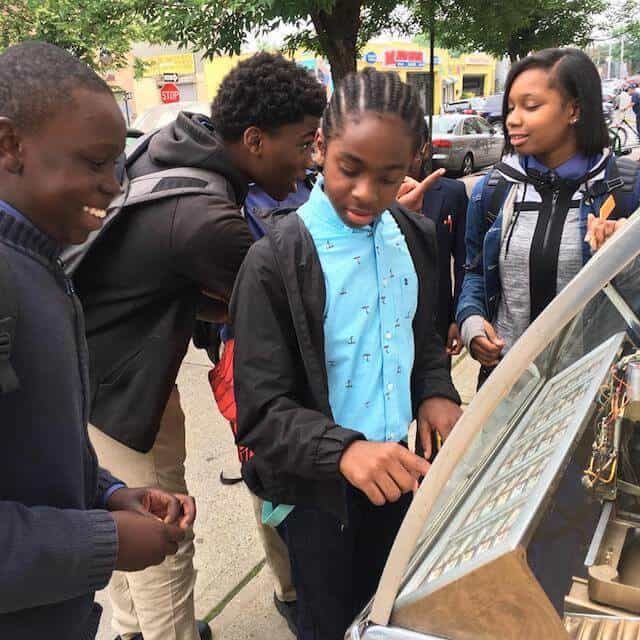
The front of New York Jukebox is inviting; the soft blue light emitted by the jukebox at night, the note, handwritten on printer paper and taped to the front door, which thanks you for your interest in jukeboxes. Most of the traffic in the shop is not from people coming in for jukebox tune-ups, but from curious passersby drawn in by the sidewalk jukebox.
Maritza Abreu, a manager at Puerto Viejo, the Dominican restaurant on the corner, says that part of Dean St. doesn’t get a ton of walking traffic, but that “people leave here heading towards Vanderbilt and they stop by Terry’s shop to play a song.”
________
Abreu says, “I think it adds a lot of authenticity to the neighborhood. People find our place and Terry’s and it’s like a little diamond in the rough.”
Swords specializes in troubleshooting and fixing the Select-O-Matic 100, the record playing mechanism that sits lit up and encased in glass atop the Seeburg’s faux wood speaker stand. Opposite his workspace no less than ten of these hulking vintage jukeboxes are parked, like used cars on the lot, waiting to be refurbished.
________
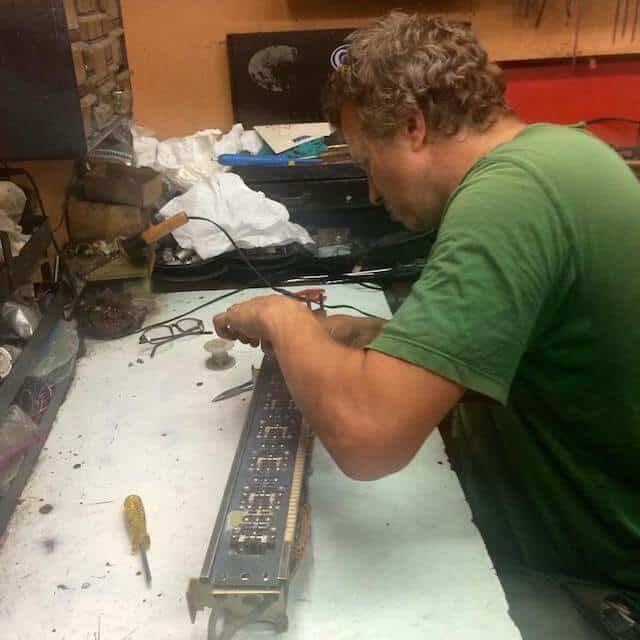
Tyrone Parsons, a Crown Heights resident who works in the auto shop next door to New York Jukebox isn’t bothered at all with people playing music on the street jukebox. Parsons enjoys Swords’ taste in music, especially on days when he puts out vintage reggae records. While we talk, Parsons plays an AC/DC track, “Dirty Deeds”, and one by Van Halen, “Dancing in the Street”.
Swords says it’s fascinating to see how people of different generations respond differently to the machines. “For older folks, it seems to be a much more emotional kind of thing. People moved by it, disturbed by it. Whereas younger people are more likely to be fascinated by the mechanics and interested in the music. For really young people, for whom the historical connections don’t mean much – they like music, they dance, they push buttons, they like the sound of the coin down the shoot.”
________
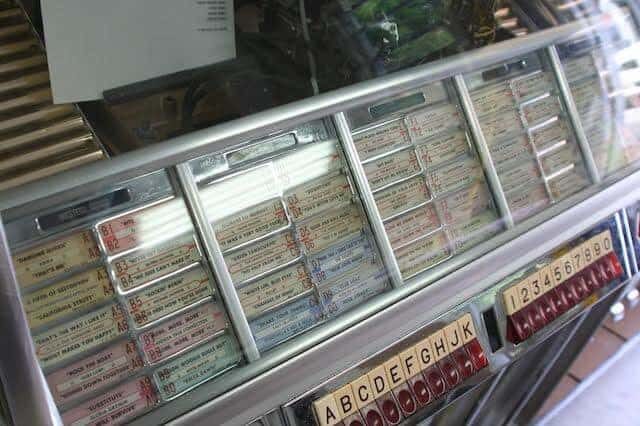
“I understand why people miss things like this, and I understand why people might feel like there’s something lost in that things like this don’t get made anymore.” Swords adds, “that’s a kind of American greatness that resonates with me.”
But it isn’t just an interest in the machines that attracts the people who stop by the shop. Swords has a deep knowledge and love of music, and his desire to share it comes through in the way that he sings along, often with his eyes closed tight, to whatever song his neighbors choose to put on.
________
One night, a man – “clearly down on his luck,” as Swords puts it – came by the shop and put on “The Age of Aquarius” by The 5th Dimension. Swords noticed that as the chorus reached “Let the sun shine in,” the man was in tears.
“Clearly that song reminded him of a time in his life that was just better for him,” Swords hypothesizes.
After the song ended, there was a momentary silence. The man asked if Swords would mind if they listened to it again. He was happy to oblige.
Leave a Reply



